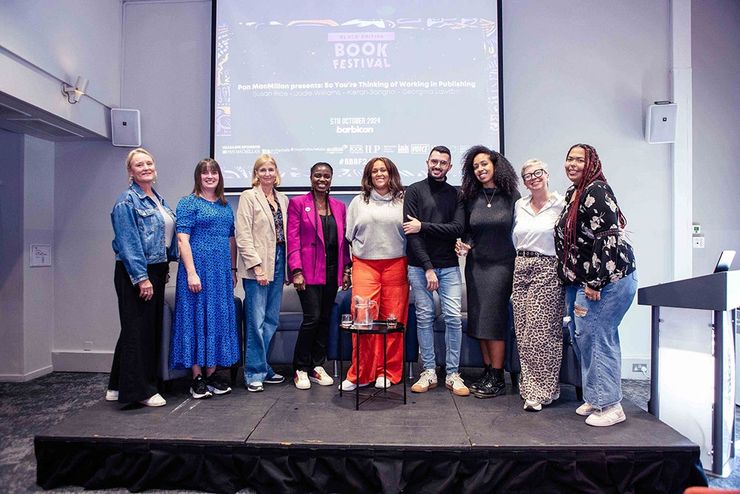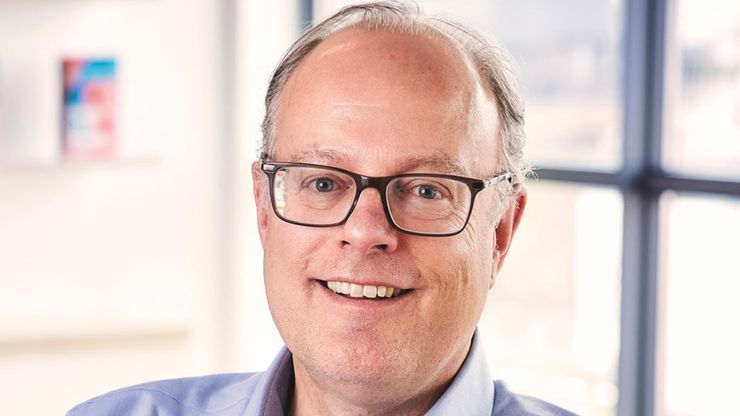How the Black British Book Festival is amplifying Black voices
Jodie Williams, head of diversity, equity and inclusion and social impact, talks to Selina Brown, CEO and Founder of the Black British Book Festival and 2024’s FutureBook Leader of the Year about the importance of celebrating Black voices on a large scale and her plans for expansion.
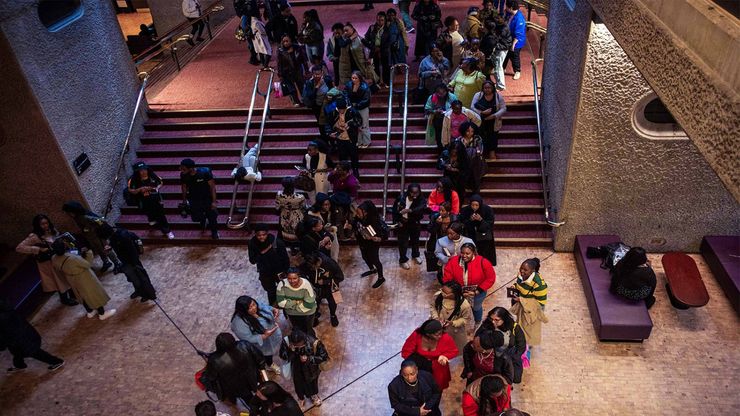
Walking through London’s Barbican at this year’s Black British Book Festival, I felt the significance of Pan Macmillan’s headline sponsorship in a profound way. Before joining Pan Mac, I’d already admired the festival’s celebration of Black literature.
Now, being part of the organisation supporting such a much needed event, I felt immense pride. This sponsorship reflects our commitment to amplifying historically excluded voices and creating meaningful spaces for Black authors and creatives.
The festival—more than just an event—is an essential space for authentic representation in literature. For attendees, especially from Black communities, it’s a rare opportunity to feel seen. As I experienced the festival, I had the chance to engage with authors, illustrators, booksellers, and readers. These conversations highlighted the importance of spaces like BBBF, where voices often overlooked by mainstream publishing can connect and celebrate together.
I sat down with Selina Brown, the CEO and founder of the Black British Book Festival, to talk about how partnering with Pan Macmillan since 2022 has shaped the festival’s mission. Reflecting on the journey so far, Selina shared:
“Partnering with Pan Macmillan from the early stages has been transformative for the Black British Book Festival. Their support provided credibility and resources that allowed us to amplify our mission of celebrating Black literature on a large scale. Pan Macmillan's involvement demonstrated a commitment from a leading publisher to prioritise inclusion and diversity. This partnership not only elevated the festival’s profile but also helped us attract a wider audience and inspire more industry stakeholders to join the conversation about representation.”
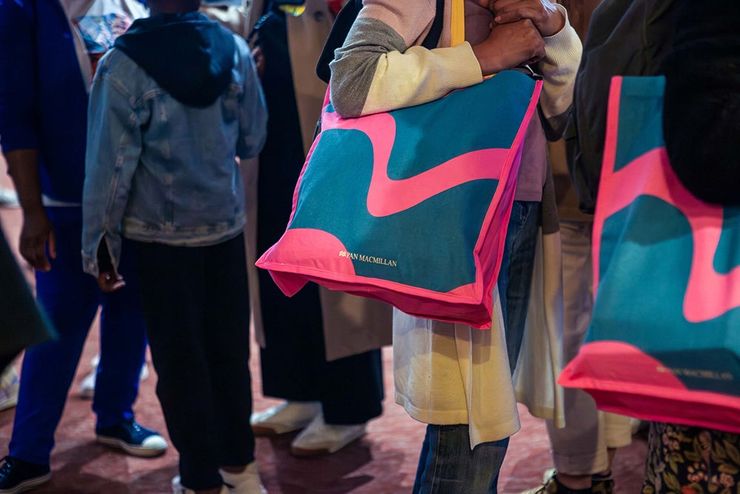
For me, the festival’s impact was deeply personal. I spoke to attendees who had never considered themselves readers but found a connection through the festival. Some had purchased books for the first time, both for children and adults. Witnessing people transition from non-readers to story lovers reaffirms my belief that the right book can change perspectives and that people deserve, at the very least, to see themselves authentically represented in stories.
The presence of young authors like Sarah Kittoe, who published three books by the age of 10, highlighted the festival’s role in inspiring the next generation. Seeing industry figures who reflect their backgrounds sends an empowering message: creativity and success are achievable goals. This sense of possibility is invaluable for young attendees.
Selina elaborated on how our collaboration with the festival opens new avenues for Black authors and creatives:
“A great example is the Writers on the Rise mentorship programme, launched in partnership with Pan Macmillan. This initiative connects emerging writers with experienced editors, providing one-to-one mentorship and actionable industry guidance. Additionally, Pan Macmillan’s involvement with the Croydon Black Book Library has furthered our mission by bringing diverse stories directly into the community, making it easier for readers to discover Black authors and fostering deeper connections between publishers, writers, and readers.”
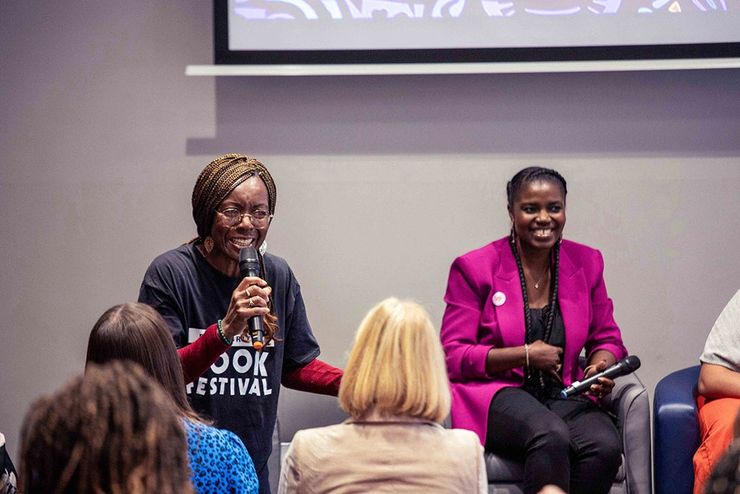
These initiatives showcase how the festival and Pan Macmillan are working to change perceptions and make reading more accessible. The festival’s energy was inspiring, with joy shared among Black authors, readers, and booksellers. The Black Child Promotions team introduced me to a non-fiction book that’s hard to find in mainstream stores, reminding me of the power of diverse literature.
I asked Selina about the festival’s role in shaping attitudes toward reading within the Black community:
“The festival has created a welcoming and inclusive environment where attendees can see themselves represented in the stories, authors, and events. Initiatives like the Croydon Black Book Library have extended this impact beyond the festival itself, making Black literature more accessible year-round. Attendees often express how empowering it is to engage with stories that reflect their experiences. For many, the festival has turned reading into a shared celebration of culture, identity, and creativity, especially for younger audiences who may not have previously seen themselves reflected in mainstream literature.”
One of my personal highlights was witnessing rapper and author Eve speak about her journey in a male-dominated industry. Growing up, I’d rap along to her hits like Who’s That Girl and What Ya Want, so seeing her in person was an unforgettable moment.
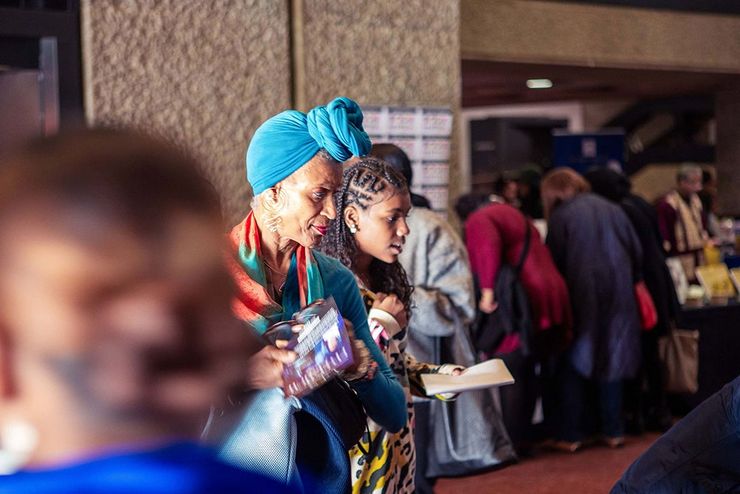
Events like BBBF counter arguments against specialised festivals by proving their necessity. The underrepresentation of Black authors in publishing remains a reality, and festivals like this provide critical platforms for visibility. Selina and I discussed the ongoing mentorship programme and its impact:
“The Writers on the Rise mentorship programme is crucial to nurturing talent and breaking down barriers within the publishing industry. By connecting emerging writers with Pan Macmillan editors, it offers personalised guidance that demystifies the publishing process. This transparency is essential for empowering writers to navigate an industry that has historically lacked diversity. For the festival, this initiative is a direct way to invest in future talent, while for Pan Macmillan, it demonstrates a commitment to creating a publishing pipeline that reflects the richness of Black British voices.”
The festival’s authenticity left me inspired—from the stories and creators to the audience. It’s a testament to the talent within the Black literary community and a driving force for a more inclusive publishing industry. Looking ahead, I’m thrilled about next year’s festival in Manchester. Being from the North, it’s exciting to see this celebration return to Manchester.
Selina shared her vision for this expansion:
“The Manchester festival, set to take place at the Manchester Central Library, will allow us to create tailored programming that resonates with the unique cultural and literary interests of the region. Building on successes like the Croydon Black Book Library, we could introduce regional initiatives such as pop-up book hubs or local author showcases, ensuring that Black voices and stories remain accessible and celebrated across the UK. Pan Macmillan’s national reach and resources will play a pivotal role in making this expansion successful, helping us meet the aspirations of the wider Black British literary community and inspire even more individuals to engage with literature.”
As the festival grows, so too does its potential to drive meaningful change. Leaving the Barbican, I carried a sense of immense pride and optimism for the future of Black literature, knowing that spaces like the Black British Book Festival are vital for a truly inclusive literary world.
You can find out more about the Black British Book Festival including their next event at Manchester Central Library here [https://blackbritishbookfestival.com]
